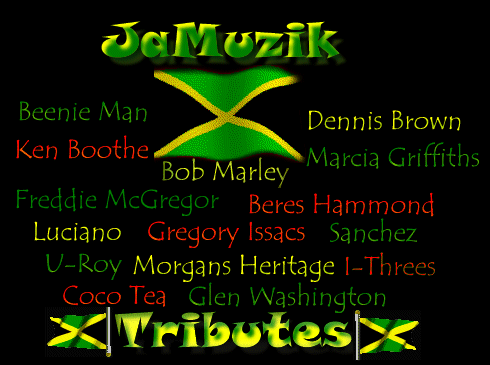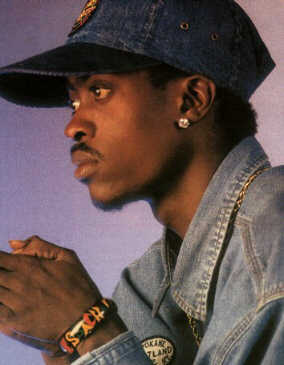

 Beenie Man - Dancehall
King
Beenie Man - Dancehall
KingBeenie Man (aka Moses Davis) was born in the tough Waterhouse district of Kingston, Jamaica, on August 22, 1973. By the time he was ready for school, the toddler had already decided on a career as a DJ. He wasn't the first tot with dreams of the limelight, but Beenie actually had a true gift for gab. His shot at stardom came when he was only eight, when he took first prize at the national Teeny Talent contest. This led to a meeting with producer Junjo Lawes, who recorded the diminutive DJ's debut single, "Too Fancy." Bunny Lee then took the boy under his wing and put him to work at his Unlimited sound system. By 1983, the youngster found himself appearing on Lawes' Junjo Presents Two Big Sounds, which was recorded live and featured such DJ heavyweights as Dillinger and Fathead. Along with Unlimited, Beenie was also DJing at Prince Jammy's Volcano sound systems, had a hit single to his credit, "Over the Sea," produced by Niney Holness, and even had a debut album out. Produced by Lee, The Invincible Beenie Man, the 10 Year Old DJ Wonder's title pretty much sums it all up. He recorded some songs with Barrington Levy in 1984, two of which, "Under Mi Sensi" and "Two Sounds," would resurface in remixed form later in the '90s. But for the moment, his recording career came virtually to a close, bar the occasional single. But the young DJ remained a sound system favorite, even as he now turned his attention to his schoolwork.
Not surprisingly, Beenie's younger brother, Little Kirk, was keen to follow in his footsteps, and five years later the siblings hooked up with producer Patrick Roberts and began recording a series of singles that quickly brought them into the national spotlight. In 1992, Beenie appeared at Reggae Sunsplash and such was the response that the DJ now felt ready to take on the big guns. Beenie's first target was the acclaimed Bounty Killer, although the young DJ had cause for his attack as the veteran had stolen his catch phrase, "people dead," and the war was on. There was a lull in the very public battle in 1993 when Beenie left Kingston for almost a year after being booed off the stage at a national show celebrating the visit of Nelson Mandela. Upon his return the next year, there was a public reconciliation with Bounty Killer, which resulted in the split album Guns Out.
Beenie had obviously had a major change of heart, further evidenced by his single "No Mama No Cry," a version of Bob Marley's "No Woman No Cry," a scathing indictment of violence, inspired by the murder of fellow DJ Pan Head. The song topped the Jamaican chart and brought the DJ instant acclaim. Beenie, too, was affected by the events of the country and Sly & Robbie, the producers of his "No Mama No Cry" single, were instrumental in guiding the young DJ toward his conversion to Rastafarianism. A new attitude and a new hit single instantly turned Beenie's career around. Now working with all the island's top producers, the DJ recorded a slew of singles, many of them religiously themed, "Praise Him" and "World Dance" (which took the Best Single Award at the Jamaican Music Awards) included.
While in the U.K., the DJ fired the British dancefloors with a jungle remix of "Under Mi Sensi." 1995 also brought a pair of collaborative albums, including Three Against War, which united the DJ with Dennis Brown and Triston Palma, and Mad Cobra Meets Lt. Stitchie & Beenie Man, a tag-team dancehall affair. Joined by Lady Saw, Beenie also scored a major hit with "Healer" that year, just one of many successful collaborative singles that included "Papa Was a Rolling Stone," which paired him with Third World. By the end of the year, Beenie was a shoo-in for the DJ of the Year Award. 1996 brought Maestro, Beenie's first "real" album, as compared to his previous hits collections. Produced by Patrick Roberts, it was a stunning effort featuring a kaleidoscope of moods. The following year proved to be his break out in Britain, when his and Chevelle Franklin's "Dance Hall Queen" bounced up the national chart. Both that single and its follow-up, "Who Am I," were number ones back at home, while the latter rocketed its way into the U.K. Top Ten. In fact, Beenie Man could now do no wrong, and a sound system's worth of his singles flew their way up the Jamaican chart that year and the next. The autobiographical Many Moods of Moses features a number of these smashes, including "Oysters & Conch" and "Foundation."
After headlining Reggae Sunsplash in 1998, Beenie signed to Virgin Records in the U.S.; The Doctor was the first fruit of this new union and was an instant dancehall classic. 1999 brought the King Jammy-produced album Y2K, he is still the Dancehall king and continues to make music....

 Sanchez
SanchezReggae singer Sanchez was born Kevin Anthony Jackson in Kingston, Jamaica on November 30, 1964. A member of his church choir throughout adolescence, he became immersed in reggae while in high school, and was eventually named the selector for the local Rambo Sound System. In time, Sanchez turned to singing as well, and in 1987 issued his debut single "Lady in Red"; a year later, he scored a major hit with the Winston Riley-produced "Loneliness." Known for his silky vocals and penchant for pop covers (including a smash rendition of Tracy Chapman's "Baby Can I Hold You"), his many albums include 1989's Number One, 1993's Tell It Like It Is, 1995's Praise Him, and 1999's True Identity. He released Songs from the Heart in mid-2000. His gospel album, He's Got the Power, would follow in 2003, while his 2010 effort Now and Forever was a return to secular music. Filled with cover versions of R&B classics, Love You More arrived in 2011. There is lost more on Sanchez check his website.
